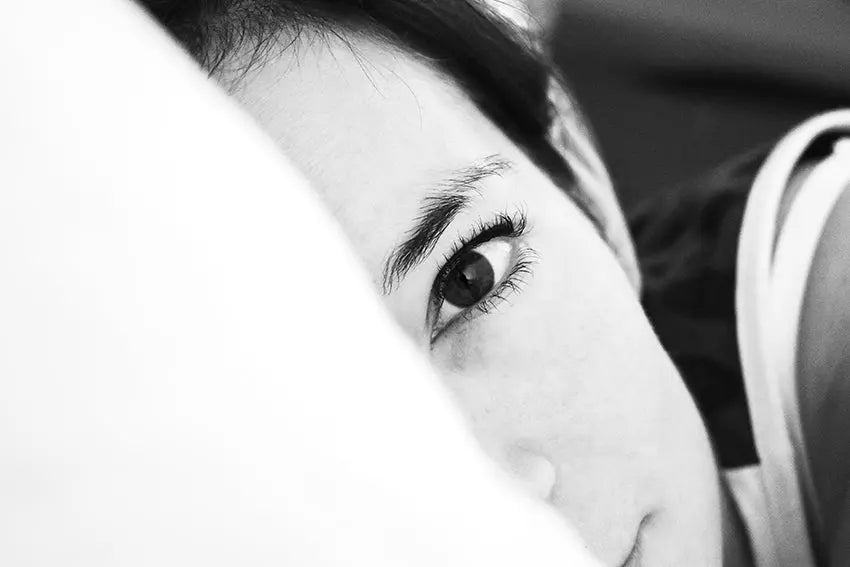
Journey through Insomnia: Sleepless Nights and Hope
|
Time to read 3 min
This store requires javascript to be enabled for some features to work correctly.
Written by: The Myza Editorial Team
|
Time to read 3 min
Whilst most of us will experience some sleep deprivation and tiredness at some time, insomnia - defined as a regular difficulty with falling or staying asleep - is different. Insomnia not only affects your sleep, it affects your whole life. It’s been estimated to affect up to a third of adults and for some it can prove debilitating. Although women are more likely to suffer from it than men, and older people are more likely to suffer than younger people, the condition can affect anyone.
For some it can last for a just few days or weeks but for others it can last much longer. Years of average unremarkable sleep and then suddenly like a light-switch flicking off it can be gone. Leaving it untreated can cause a whole raft of secondary problems; during the daytime, reduced cognitive ability, drowsiness, poor mood control, depression, impaired immunity and over time, increased risk of heart disease, obesity and diabetes My own insomnia started with the birth of my son.
Born three months prematurely, with potentially long-term health problems, a full night’s sleep or simply a carefree existence without constant worries about your baby, disappeared in a flash. Days and nights were spent in the intensive care baby unit, willing our critically ill, tiny son to survive. When we eventually brought him home at three months, I would sit with him through the nights, listening intently to his breathing, watching the rise and fall of his little chest, nervous at not keeping watch. And when he grew stronger and I finally returned to our bed, I found myself struggling to sleep, lying awake night after night still alert to the slightest sound. I consoled myself with the thought that this would pass, and I would soon be enjoying nights of perfect sleep once more.
My son entered his twenties but far from climbing into bed at night and going out like a light I had become more wakeful than ever. It should be so easy, you go to bed, you sleep, right? But falling asleep is one of those perverse things that are harder to do the more you try. Trying to drift off just does not work. Sleep is a reflex and needs to happen effortlessly, when it stops happening and you start trying, problems begin. I constantly experienced people telling me that they too had a bad night’s sleep. But insomnia can involve night after night, week after week, month after month, of wakeful, fretful sleep that leaves you feeling wretched. It is a lonely and isolating condition.
In theory, you are supposed to get up and read or busy yourself with mundane tasks. In reality, you are so exhausted that even the thought of this is overwhelming. It becomes a vicious cycle. The more I worried about not sleeping, the less I slept. I found that after 2am things got wretched, I would constantly check the clock which just increased the anguish and the fact that I was still awake despite pretty much everyone being asleep and my mind and body being completely exhausted and needing its sleep.
After 4am things became progressively worse and panic would start to set in, a sudden sense of realisation - what if you don’t sleep? My mind would be besieged by negative thoughts and I was desperate for the morning so that I could write off the night and hope for better luck next time. And then suddenly I could find myself falling asleep for an hour before needing to get up for work. Sleeping pills failed to improve the situation. Not only did they fail to work for me, but I felt dreadful on them, in a permanent fog so ditched them after a week. Whilst there are some appropriate uses for prescription sleep aids (if they are used correctly), they can come with extremely dangerous side effects, and they tend to be highly addictive.
Insomnia need not however be a lifelong affliction. I eventually found a combination of different lifestyle changes helped me, more on these in Part II of these articles on Insomnia. I still have the odd night when it takes me one to two hours to drift off, the rest of the time however I sleep soundly. If lifestyle changes alone fail to improve your sleep, then an alternative to consider is cognitive behavioural therapy (CBT) which evidence suggests can be an effective way to treat insomnia. Cognitive behavioural therapy focuses on teaching techniques to help you relax, control your breathing and mood, slow down your racing mind, and get to sleep. It’s a means of reteaching your body how to sleep. More on CBT in Part II.
Receive 10% off your first order when you subscribe to our newsletter


